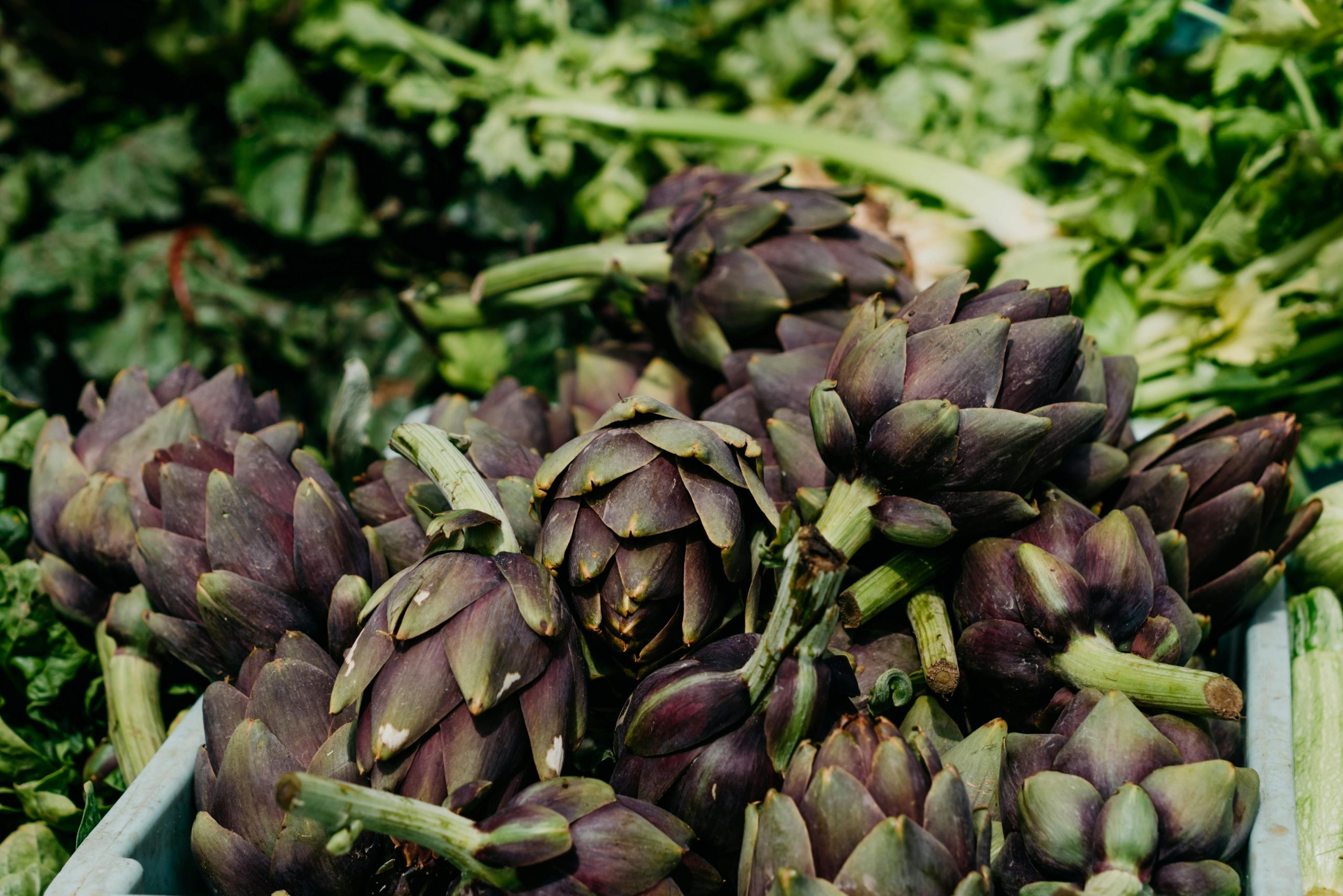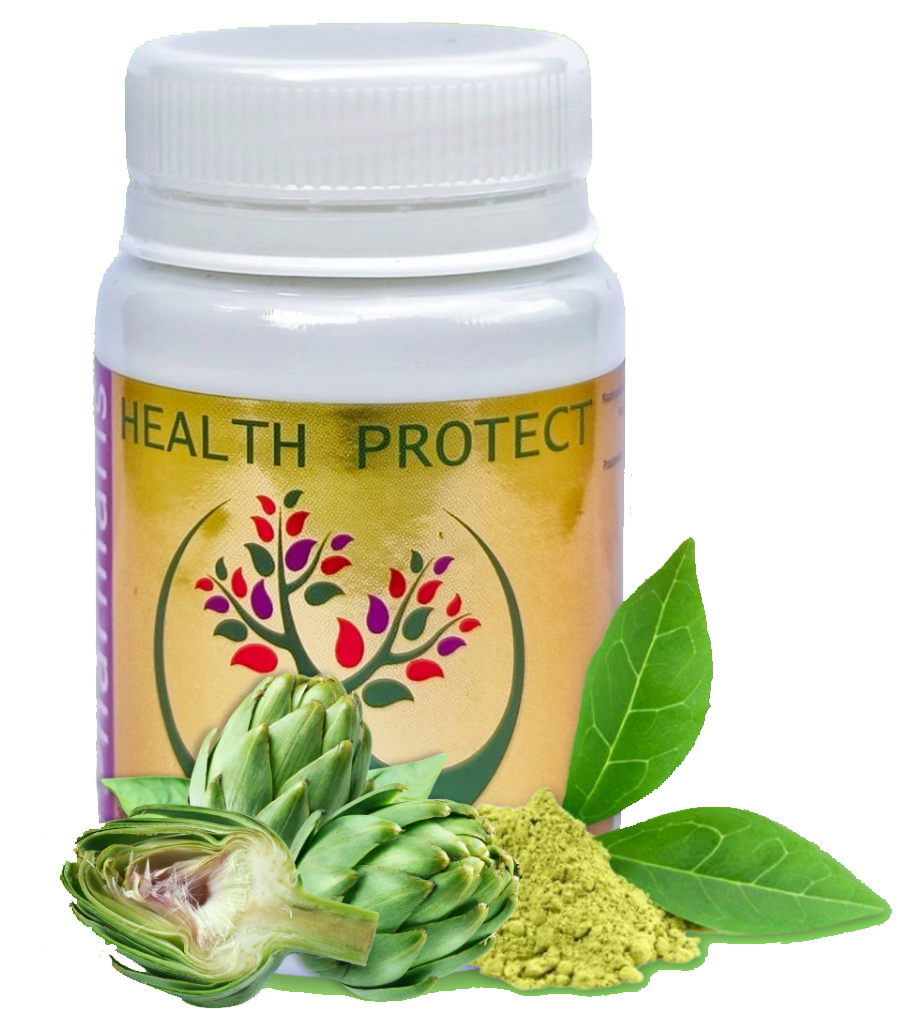Meet
Magnificent Artichoke
Artichoke (Cynara scolymus) is a Mediterranean plant known for its nutritional properties, rich taste and medicinal effects. It belongs to the Asteraceae family and has been part of the culinary and medicinal traditions of many cultures for centuries.
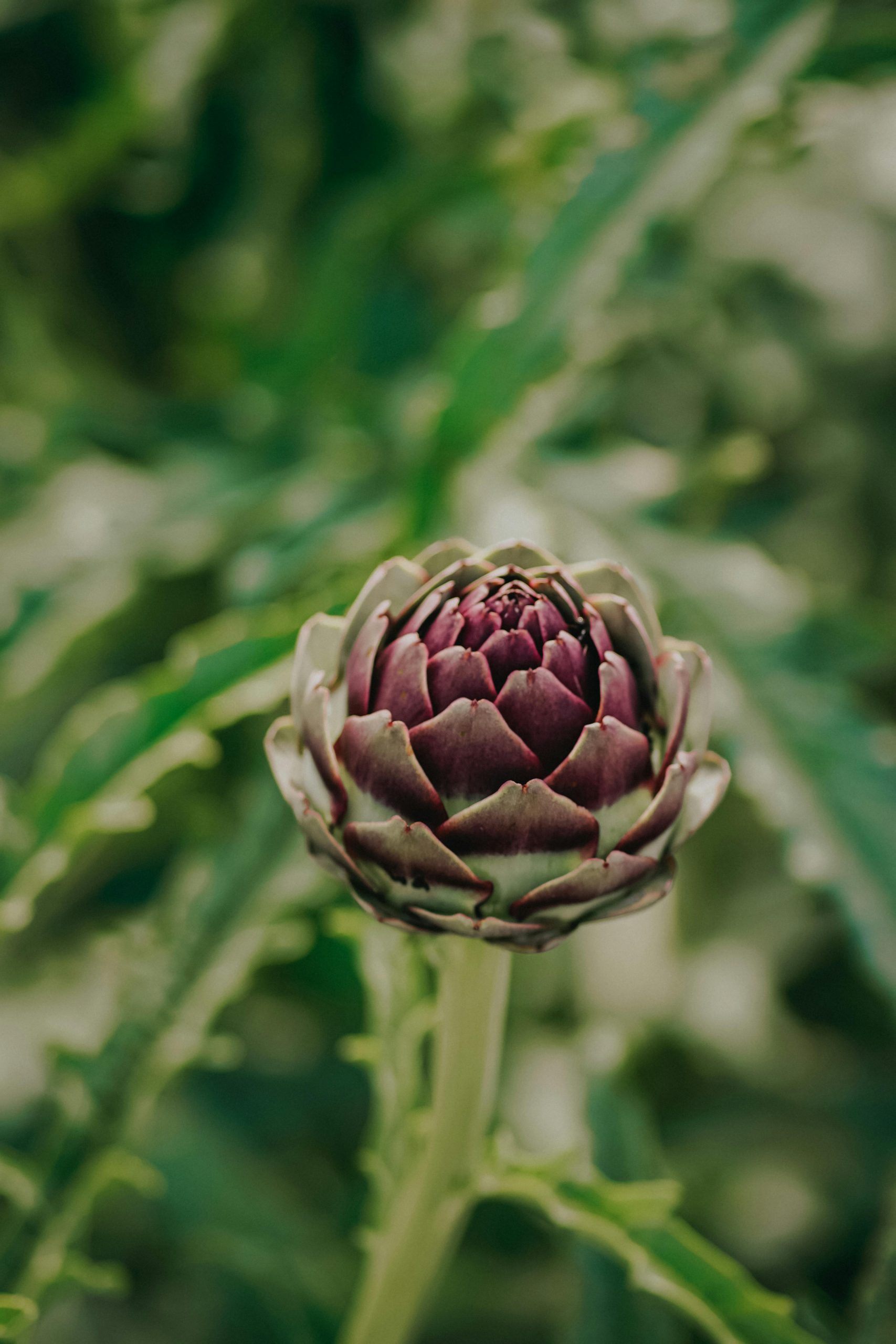
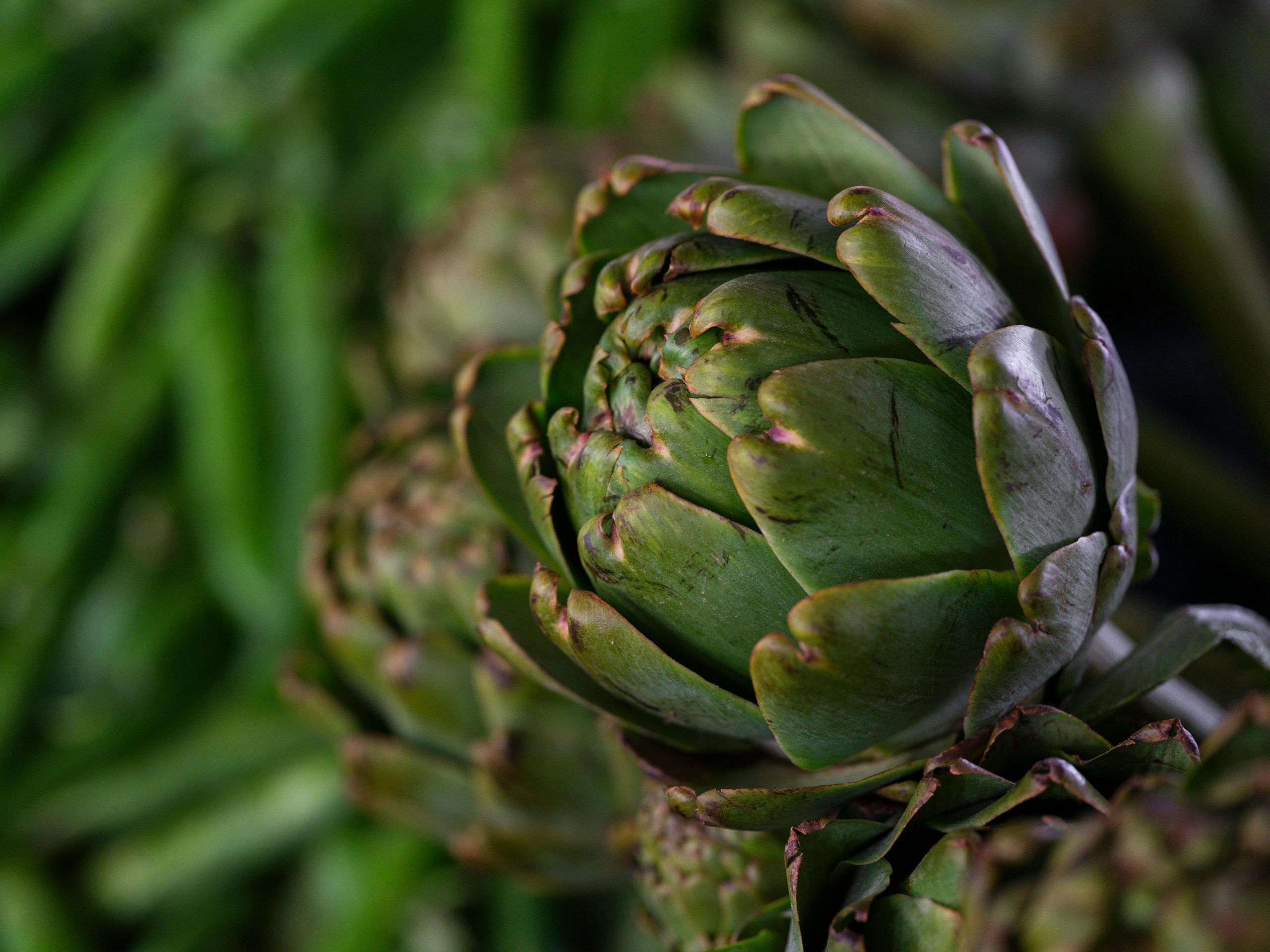
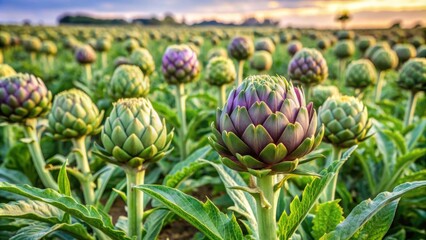
Nutritional values
Artichoke is a low-calorie food rich in fiber, vitamins and minerals. It contains:
Vitamin Ca stronger immunity.
Vitamin K: contributes to bone health
Folic acidimportant for pregnant women and general health
Mineralssuch as magnesium, potassium and iron
In addition, artichoke is rich in antioxidants, such as cinnabar and luteolin, which help fight free radicals.
Appearance and cultivation
Why is artichoke so much healthy
Artichoke is a perennial plant that can reach a height of up to 1.5 meters. Its distinctive edible part is the flower, more precisely the unopened flower head. The leaves are grayish green and the flowers, when flowering, have an attractive purple color.
It is grown in areas with warm climates and well-drained soil. It is most often planted in spring and harvested in late summer and autumn. It needs regular care, which involves watering and weeding.
Artichoke (Cinara scolimus L.)
Artichoke has a low energy value and almost negligible amounts of protein and fat, but is therefore extremely rich in minerals, vitamins and antioxidants.
Artichoke has a low energy value and almost negligible amounts of protein and fat, but it is therefore extremely rich in minerals (potassium, phosphorus, calcium, manganese, magnesium and sulfur), vitamins (provitamin A, vitamins of Group B and C), and its bitter taste is due to tannic acid.
Here are the benefits you will get from this amazing plant:
- ARTICHOKE EXTRACT HELPS WITH INDIGESTION
Cinnabar, a natural compound found in artichokes, stimulates the production of bile and helps the digestion of fats and absorption of vitamins. Artichoke extract also helps digestion by preventing intestinal spasm. Artichoke extract also helps reduce bloating.
- ARTICHOKE HELPS WITH IRRITABLE BOWEL SYNDROME
Irritable bowel syndrome (IBS) is a gastrointestinal disorder that affects 22% of the population. Some symptoms include abdominal pain, diarrhea, bloating, and constipation.
Many factors contribute to ISC: unbalanced gut flora, genetic factors, inflammation, and immune disorders.
Artichoke has a preventive and curative effect on ISC. Regulates intestinal flora and stops muscle spasms. These effects may help reduce ISC symptoms.
- ARTICHOKE IS A GOOD ANTIOXIDANT
Artichokes, especially leaves, contain many beneficial antioxidant polyphenols in high concentration.
The most important are chlorogenic acid, cinnarine and luteolin.
Research using artichoke extract has shown that artichoke protects cells from oxidative stress caused by hydrogen peroxide. The cells treated with artichoke extract had reduced levels of oxidative damage and inflammation.
- ARTICHOKE EXTRACT HELPS TO STOP THE GROWTH OF CANCER CELLS
Antioxidants found in artichokes destroy cancer-infected cells and can stop the formation of new ones.
In studies using artichoke extract, it has been shown to inhibit the growth of breast cancer cells. The extract can selectively inhibit the growth of cancer cells as well as their destruction without damaging healthy cells.
Artichoke leaf extract also has antitumor effects in mesothelioma cancer cells (a type of asbestos-induced cancer in lung, stomach, or heart tissues).
Researchers plan to investigate the anticancer activity of artichoke extract in a human clinical study
- ARTICHOKE EXTRACT PROTECTS THE LIVER AND SUPPORTS DETOXIFICATION
Artichoke leaf extract can help protect the liver and regenerate tissue.
Artichoke extract stimulates the production of bile, which helps to remove dangerous toxins from the liver.
The antioxidants in artichoke extract can help protect the liver from oxidative damage.
Paracetamol (a pain reliever) often causes liver toxicity due to oxidative damage and reduced glutathione content. In a study conducted on rats, it was shown that artichoke extract may help protect the liver in the event of an overdose of paracetamol.
Non-alcoholic fatty liver disease is another major health problem. Oxidative stress and inflammation are risk factors for this disease. Artichoke leaf extract can stop liver inflammation.
- ARTICHOKE LOWERS CHOLESTEROL
One of the ingredients of artichoke, luteolin, inhibits the formation of cholesterol. This helps to reduce cholesterol levels.
The main method of eliminating cholesterol in the body is through bile (conversion to cholic acids). Artichoke leaf extract stimulates the secretion of bile acid, which lowers cholesterol levels in the body.
High cholesterol levels can cause plaque to build up in the arteries. This contributes to heart disease. By lowering cholesterol levels, artichoke extract can stop plaque buildup.
The antioxidant effects of artichoke extract also reduce the amount of plaque in the arteries.
- ARTICHOKE EXTRACT REDUCES BLOOD PRESSURE
Artichokes contain a higher concentration of potassium, which can help lower blood pressure and prevent heart disease.
Artichoke extract can activate cellular production and increase the activity of eNOS, the enzyme that produces nitric oxide. Nitric oxide dilates blood vessels, leading to a decrease in blood pressure.
- ARTICHOKE EXTRACT PROTECTS THE HEART
Metalloproteinase enzymes play a key role in plaque accumulation and the formation of ruptures in the arteries, leading to heart attack. The high concentration of these enzymes contributes greatly to the development of heart disease. The extract obtained from Artichoke inhibits the action of these enzymes.
- ARTICHOKES CONTRIBUTE TO SKIN HEALTH
Oxidative stress contributes to skin conditions, such as dermatitis, aging, and skin cancer. Cinaropicrin is the main bioactive chemical in artichoke extract. Reduces oxidative damage caused by UV radiation and protects the skin.
- ARTICHOKE EXTRACT HELPS WITH DIABETES SYMPTOMS
Artichoke leaf extract has a positive effect on reducing blood glucose levels.
In a study involving 39 overweight patients, a group of subjects who took artichoke extract for 2 months managed to lower their glucose levels. The decrease in glucose in the artichoke group was much higher than in the control group. However, the level of insulin in the blood has not changed.
One possible mechanism by which artichoke reduces glucose levels is the inhibition of alpha-glucosidase, an enzyme that breaks down starch into glucose. Artichoke extract mildly inhibits alpha-glucosidase activity.
- ARTICHOKE EXTRACT CAN HELP YOU LOSE WEIGHT AND REDUCE FAT
The combination of bean extract and artichoke extract can help if you want to lose weight. Taking this combination helped create a feeling of fullness in a study of 39 overweight subjects.
During the study, the group that took artichoke extract and beans lost more weight than the control group. However, these effects were not statistically significant. This can also be attributed to the low-calorie diet that patients practiced.
Another study published at the Scripps Clinic in San Diego points out that artichokes play a significant role in shaping them. Bitter substances from artichokes burn fat directly from food.
CAMELLIA SINENSIS
The leaves of the Camellia Sinensis plant contain micro and macro elements that are a natural source for meeting the human needs for these elements.
For example, tea contains magnesium, which is necessary for the normal functioning of the human nervous system, heart muscle, affects the work of the cardiovascular system, increases the activity of the colon, etc.
Considering that white, green and black teas are rich in magnesium, we can say that they are real calming teas, because they help fight insomnia, chronic fatigue, muscle spasms, cardiac arrhythmia, etc. as a result of magnesium deficiency.
Also, the leaves of the Camellia sinensis plant contain several alkaloids, among which the most famous are: theophylline, theobromine, and caffeine.
Theophylline and theobromine are used in the treatment of cardiovascular disease and kidney disease. These alkaloids are part of the cure for these diseases.
Therefore, for the health of the cardiovascular system, green, black or white tea is recommended.
For relaxation and relief from stress and everyday mental problems, drinking Camellia sinensis tea can be very effective given the presence of the amino acid L-theanine, which has a proven calming effect without reducing concentration.
Chinese tea is one of the oldest and most perfect pharmaceutical products, containing about 300 chemical compounds whose combination in tea is unique and cannot be found in other herbs or chemical preparations (in tablets), which is why it is often used in traditional and modern medicine.
Some of the best-known healing effects of this drink are: a positive effect on the heart and blood flow, its effectiveness as an anti-stress drink, but also an effective tea for tranquilizers.
FOLIC ACID
What is folic acid used for?
Folic acid is important for normal brain function, mental and emotional health. Prevents irritability, fatigue, depression, deconcentration, insomnia. It participates in the formation of DNA and RNA, the genetic material of the organism, and is especially important when tissues and organs are growing rapidly (pregnancy, childhood). Folic acid and vitamin B12 are involved in the formation of red blood cells, which carry oxygen to all parts of the body. Folic acid is useful in some types of anemia (megaloblastic anemia due to folic acid deficiency), and in some types of anemia it can mask vitamin B12 deficiency and thus lead to damage to nerve cells.
Folic acid, vitamin B6 and B12 affect the level of the amino acid homocysteine in the blood. Increased levels of homocysteine have been linked to heart disease, depression, and Alzheimer's disease. Folic acid deficiency has been linked to both degenerative nerve damage and Parkinson's disease.
For women who want to get pregnant in case of improper diet, it is recommended to use 400mcg of folic acid per day. Multivitamin preparations for pregnant women and women planning pregnancy usually contain 400 mcg of this acid. It also appears to prevent miscarriage, although a clear link has not been established.
Heart disease
Folic acid can protect the heart and blood vessels. A link has been found between elevated homocysteine levels and the chance of heart attack and stroke. People who have high levels of homocysteine in their blood are 1.7 times more likely to have coronary artery disease (which leads to myocardial infarction) and 2.5 times more likely to have a stroke compared to people with normal homocysteine levels. However, it is not yet determined whether homocysteine causes heart disease or something else affects the increase in homocysteine and the development of heart disease. For now, some experts believe that reducing homocysteine can reduce your chances of developing heart disease, heart attack, and stroke.
Depression
Practice has shown that some people in depression also lack folic acid, and the more folic acid they lack, the more pronounced the depression. Low levels of folic acid have also been linked to poor response to antidepressants.
Tumor-carcinoma
Folic acid, according to some studies, can protect against cancer of the colon, breast, cervix, pancreas and stomach. The relationship and role of folic acid in the eventual anti-cancer effect has not been clearly established. However, because folic acid is necessary for the growth of every cell, according to some experts, it may contribute to the growth of cancer, which the immune system might otherwise destroy. Opinions are divided, and until more is known, it is best that people who have had cancer do not take this acid on themselves.
Folic acid deficiency has also been linked to osteoporosis. People with high homocysteine and low folic acid levels have been found to have an increased chance of heart disease, senile dementia, and osteoporosis, as well as bone fractures.
VITAMIN D
First of all, we owe healthy bones. Vitamin D helps the absorption of calcium in the intestines and helps maintain adequate levels of calcium and phosphorus in the blood, which is necessary for healthy bone mineralization.
Vitamin D deficiency in children can cause rickets, which leads to bone deformation due to their softening. In adults, vitamin D deficiency also manifests as osteomalacia or softening of bones. Osteomalacia leads to poor bone density and muscle weakness. Long-term vitamin D deficiency can also lead to osteoporosis.
Also, its intake in sufficient quantities can trigger effective immune protection and reduce the risk of autoimmune diseases. Researchers suggest that there may be a link between long-term vitamin D deficiency and the development of autoimmune conditions, such as diabetes, asthma and rheumatoid arthritis, but more research is needed to confirm this link.
Although our body can produce vitamin D, Some people are more likely to be deficient. The factors that can affect this are skin color, as more pigmentation reduces the body's ability to absorb the ultraviolet (UVB) rays of the sun. Absorption of sunlight is necessary for the skin to produce vitamin D. Another factor is lack of sun exposure, so people who live in northern latitudes or high pollution areas, work night shifts, or are housebound should regularly take vitamin D from food or supplements.
Older adults are also in a group at risk for symptoms of vitamin D deficiency; the skin's ability to synthesize vitamin D decreases with age, and older populations often spend more time indoors. In addition, there are obese people because high levels of body fat can limit the body's ability to absorb vitamin D from the skin.
Vitamin D is a very important vitamin in the body because it maintains calcium levels. It helps the body absorb calcium from food, which stimulates the strengthening of bones. Without sufficient vitamin D, bones can become thinner, brittle, and soft, further leading to a higher risk of fractures and bone diseases such as osteoporosis and osteomalacia.
When it comes to immunity, vitamin D also plays a very important role, because its optimal intake/production greatly affects the strengthening of immunity and has a positive effect on the nervous system. Another advantage is the regulation of blood sugar, so it can be helpful to diabetics.
In addition to these two benefits, it is very important to note two other benefits of vitamin D, which are:
- Helps in the development of the lungs and cardiovascular system
* Plays a key role in the fight against obesity
Health benefits
Artichoke in service health
Supports liver healthCinnabar from Artichoke helps detoxify and regenerate the liver.
Improves digestionStimulates the production of bile, facilitating the digestion of fat.
Reduces cholesterolHelps regulate harmful cholesterol (LDL) levels.
Regulates blood sugarIt is a good choice for people with diabetes.
Strengthens immunityThanks to the richness of vitamins and antioxidants.
Artichoke is used in various dishes around the world. It is most often prepared by cooking, baking, or grilling.
Use in the kitchen
Salad
Pasta
Pizza
Sauces and sauces
In addition, heart artichoke is a true delicacy, while the leaves are often used to prepare teas and tinctures.
Interesting facts
The Artichoke is known long ago
Artichoke was a favorite food in Ancient Greece and Rome.
In Italy and France it is considered a true gastronomic treasure.
There are more than 140 varieties of artichoke, but only 40 are edible.
Artichoke is more than just a plant – it is a symbol of Health, taste and culinary delight. By incorporating artichoke into your diet, you contribute to better health and enrich your menu with something exceptional.
